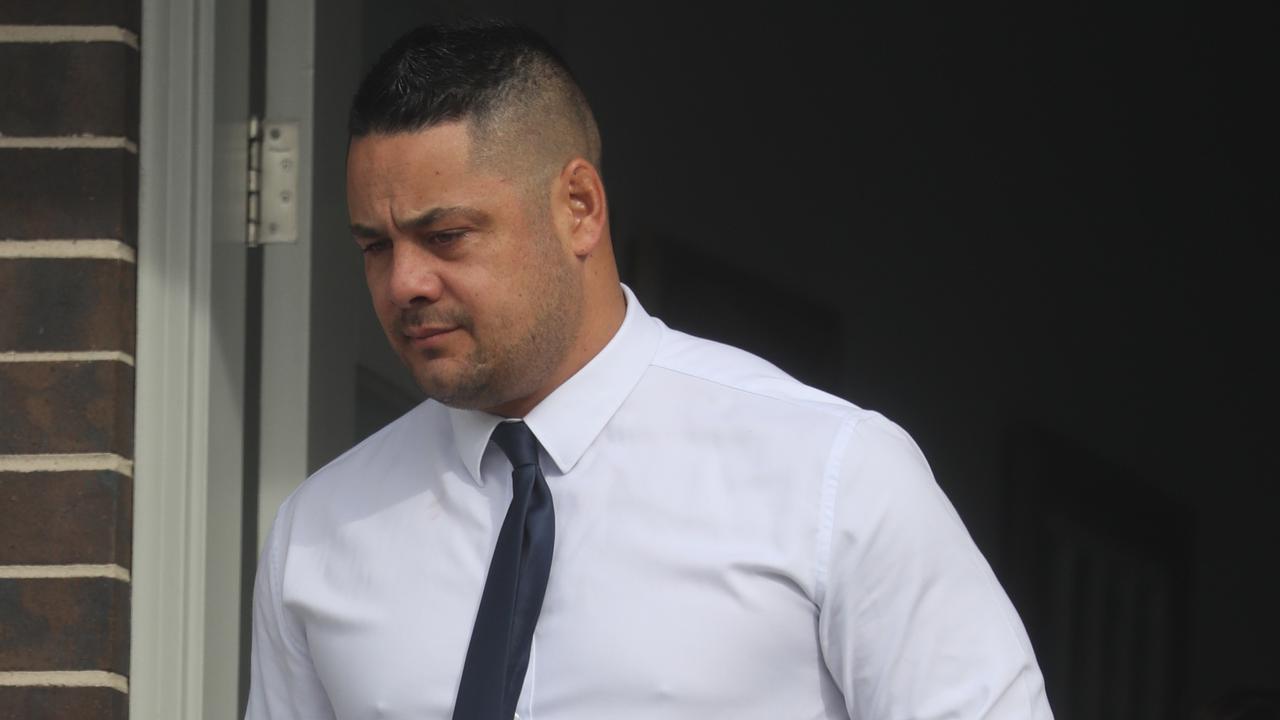Jarryd Hayne’s rape trial was about consent and nothing more
One word used to describe the behaviour of Jarryd Hayne’s rape survivor before they met was found by the jury to be irrelevant to his crime.

ANALYSIS
Keen.
It may be one simple word, but its use in the context of a rape trial is far more complex.
On Tuesday, fallen NRL star Jarryd Hayne was found guilty of two counts of sexual intercourse without consent.
A jury accepted that he orally and digitally raped a woman more than four years ago, when he stopped by her house on the way home from a buck’s party.
The 11-day trial heard Hayne’s evidence and the defence team’s submissions on his behalf about the woman he has been found guilty of raping.
It painted a picture that was ultimately seen as irrelevant by the jury.

In a nutshell, it was one of a woman into footy boys and acutely aware of Hayne’s status and fame; one of a woman set on hooking up with the former superstar.
Hours on end were spent in the courtroom picking apart social media chats and texts that the defence said cast doubt on the woman’s evidence.
The conversations showed she was the one who initiated contact on Instagram. Hayne told the court she immediately seemed “keen and upfront” with her flirty and suggestive messages. She joked about imagining having “hot as hell” sex with him, sent raunchy photos and invited him into her house at 9pm, having never met him before. She had even invited another man over beforehand – though he didn’t accept her invite. When Hayne arrived, he was taken straight to her bedroom.
But what does that have to do with consent?

The defence team accepted the woman changed her mind about having sex with Hayne when she saw a taxi waiting through her bedroom blinds.
She had thought he would have at least stayed longer but realised he was only there for one thing. In his own evidence, Hayne admitted that she told him she did not want to have sex.
The crux of the case was whether or not the woman consented to Hayne committing oral and digitally penetrative sex acts after she had said no to sex.
It rested on whether she said “no” and “stop” and attempted to resist, but eventually gave in to a man who was twice her weight.
It rested on whether, alternatively, they kissed willingly before jointly taking off the woman’s pants and engaging in consensual acts.
The jury ultimately accepted the former version of events. They accepted it was rape.
Any words said or actions made before that moment of traumatic violation were irrelevant.
The woman may have acted flirty and keen towards Hayne – so what? She may have previously entertained the idea of sex – who cares?
Every person owns their body and the right to say no at any point. That is true for those who are into footy boys, send intimate photos, and invite men into their bedroom the first time they meet.

This is not to suggest the survivor was only interested in Hayne for his fame and status. That can’t be known.
It is to suggest the answer to that question is redundant to the crime of which Hayne was on trial for committing.
Women can be raped by men they are interested in and who they have had sex with before. Boyfriends can assault their partners. Husbands can assault their wives.
Where society places significant weight on a woman’s flirtatious gestures and suggestiveness prior to the moment in question feeds into rape culture, victim-blaming and slut-shaming. It echoes the sentiments of “she asked for it” and “boys will be boys”.
Meanwhile, Hayne was painted by the defence as the type of man who would never force himself on a woman in a criminal way (as if this ‘type’ of man should be obvious to women).
In closing arguments, the defence told the jury that “most men are not rapists”.
More Coverage
But Judge Graham Turnbull SC told them they must not reason in that way and must instead focus on what was said and done by Hayne and the woman.
Consent.
It’s one simple word.






